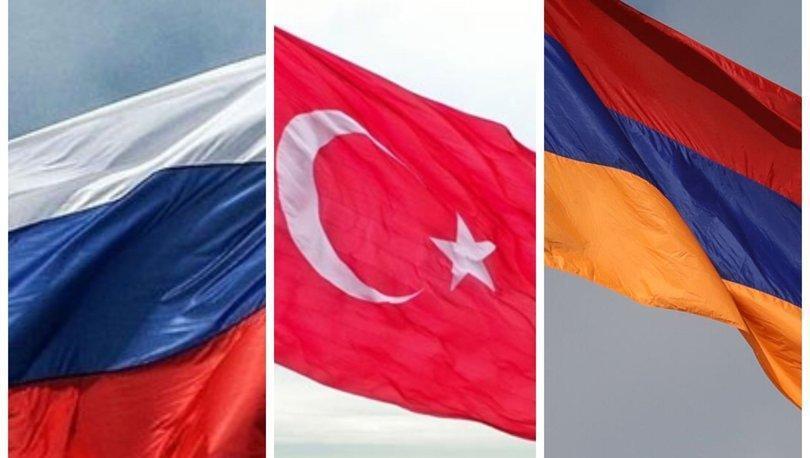
Russia wants the solution to problems between Turkey, Azerbaijan and Armenia, Alexandr Sotnichenko has said and emphasized that the “genocide theories” defended in the region “only bring fighting for the future,” the daily Milliyet reported on May 16.
The three-day International Congress on the Future of the Caucasus, organized in cooperation with the Turkish Cooperation and Coordination Agency and the Institute of Strategic Thinking, was held at the Presidential National Library.
Sotnichenko made a presentation dubbed “Is the Caucasus a Bridge Between Civilizations or a Point of Chaos?” in the session of the Congress on Regional Disputes and Solutions in the Caucasus.
In his presentation, Sotnichenko stated that the Caucasus has been under the political and cultural influences of great civilizations such as Russia and the Ottoman Empire for the last 200 years.
“A very special inter-civilizational culture has been preserved in the Caucasus. There are cultures of Shia, Sunni, Sufi, Turkish nationalist, Russian and western. I think this is the richness of Eurasia,” he said.
Elaborating on the actors in the Caucasus, Sotnichenko said: “The first group is local actors; Azerbaijan, Georgia, Armenia. Secondly smaller and ubiquitously unrecognized actors; for example, Abkhazia and South Ossetia.”
There are ethnic and religious problems, and these actors always have demanded from their neighbors, the Russian official said.
“And based on etymology, there is the theory of genocide of some people. What does this theory say, ‘We are poor, we are good people, but they came and killed us,’” he said.
Sotnichenko referred to an article by Evgeniy Bahrevskiy, cultural attaché at the Russian Embassy: “Genocide theories in the Caucasus.”
“In the Caucasus, not only Armenia but also other peoples have their own theories of genocide. Mostly in Ossetia. He says there are 18 genocides in the history of Ossetia. This is not very positive because genocide theories only bring fights for the future,” he said.
Noting that the second group is the regional actors, Sotnichenko said the most important ones were Russia, Iran and Turkey.
“Yes, there is a lot of competition between us. Every country wants to show its influence. This is normal in international relations. Regional actors do not want a big war. War for us means this refugee, this smuggler, the closure of trade routes. And we do not want that,” he said.
“We want to see the Caucasus as a bridge. For us, peace is better than war. But there are other actors as well. Not so for them,” he added.
Stating that the most important non-regional actor is the United States, Sotnichenko said, “Its target is clear, we know it. Democracy and liberal economy. We live in a multipolar world. But the U.S. wants to maintain global leadership.”
The official stressed that the U.S. has not preserved its global power over the past century and that now also there are other powers in the global order.
“There are very strong Eurasian actors,” he said, referring to China, Russia, Turkey, Vietnam and Iran. Noting that these countries are America’s rivals, Sotnichenko said: “How can the U.S. establish its own global leadership? Can it also organize a big fight in Eurasia? And the Caucasus is a very good potential fighting point.”
Stating that the western influence is very strong in Armenia, Sotnichenko said, “The diaspora has an influence both the U.S. and France want to affect. They do not want peace. Turkey was very close to peace with Armenia. They had football diplomacy. But the diaspora did not want this. We [the Russian government] do not support Pashinyan’s government in Armenia, but we do not want a major war in the region,” he said.